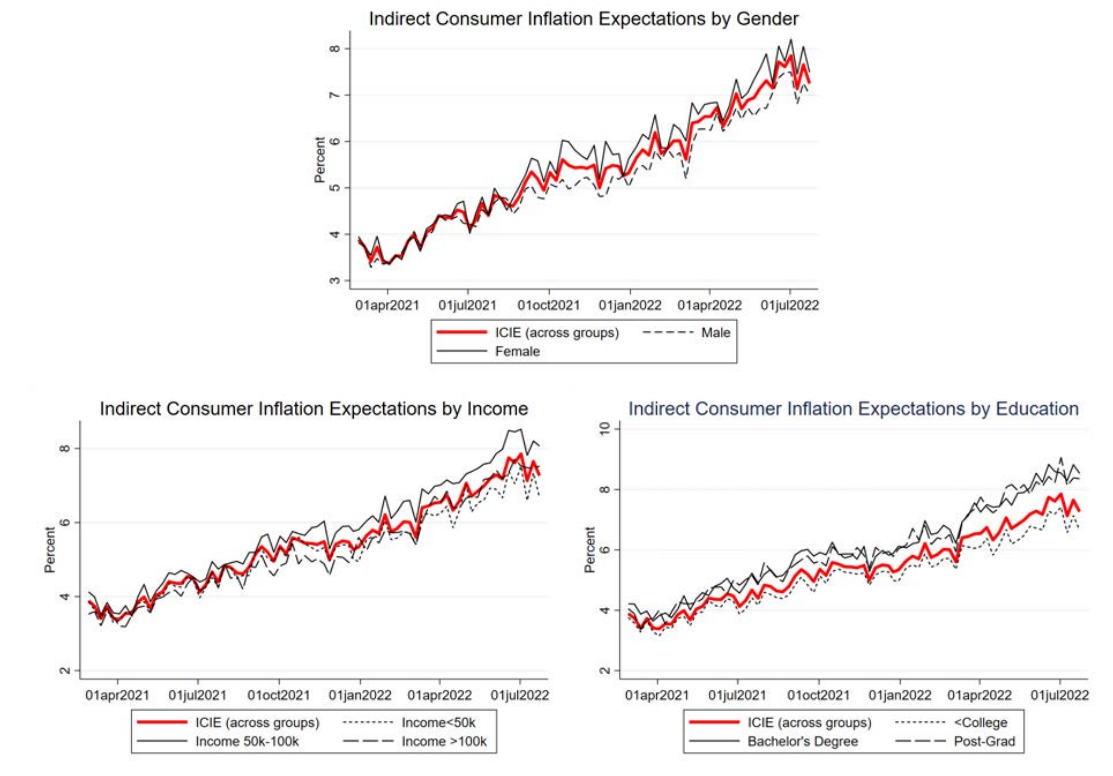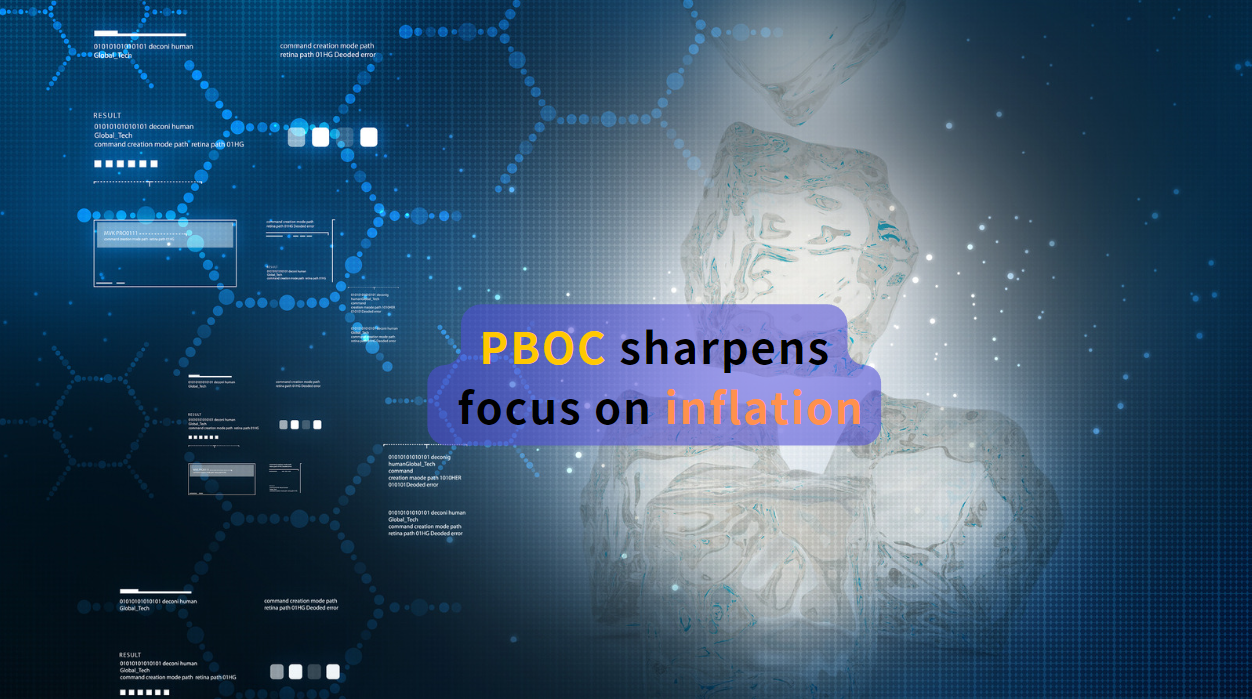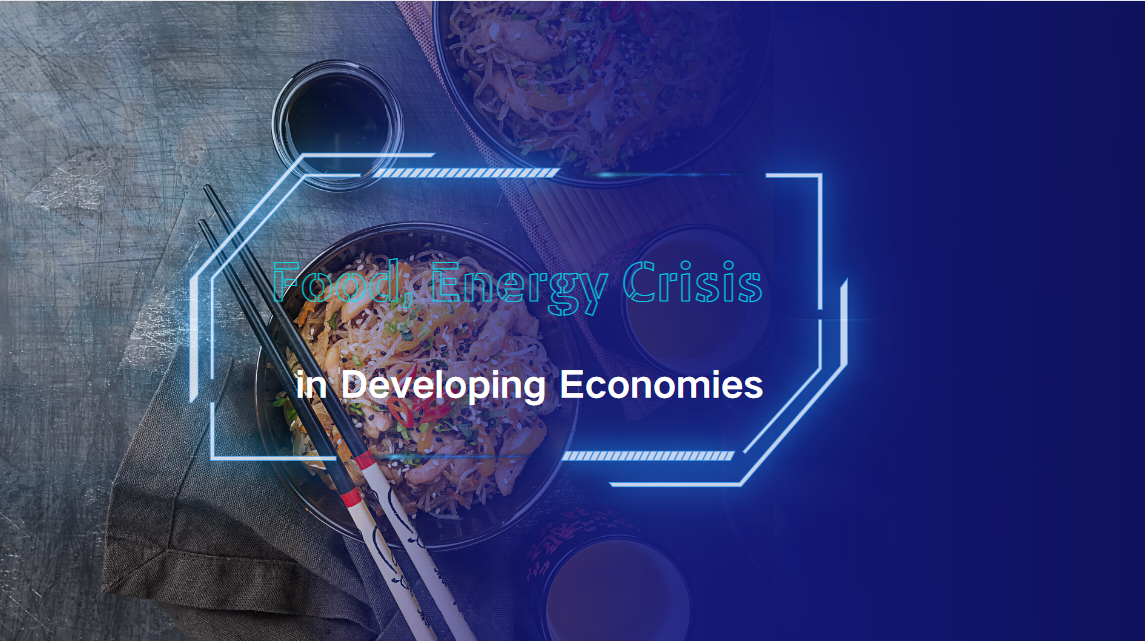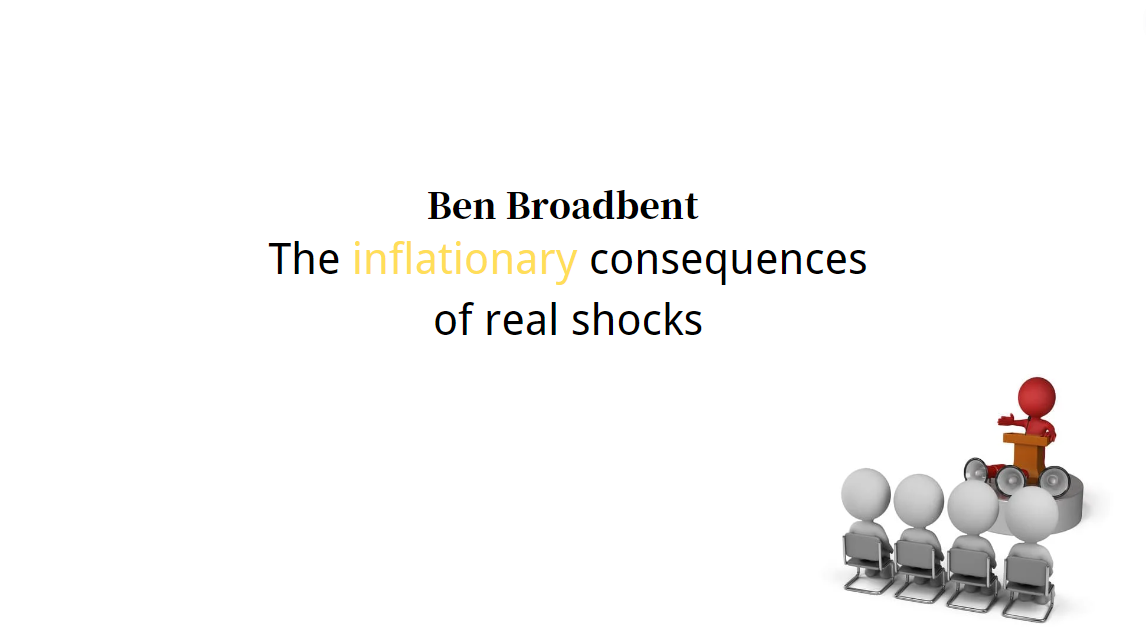Indirect Consumer Inflation Expectations: Theory and Evidence
Download → pdf

This methodology starts at the individual level, asking consumers about the change in income required to buy the same amounts of goods and services one year ahead. Analytically, our methodology possesses smaller ex-post aggregate inflation forecast errors relative to forecasts based on conventional survey questions. We ask this question in a large-scale, high-frequency survey of consumers in the US and 14 countries, and we show that indirect consumer inflation expectations perform well along several empirical dimensions. Exploiting the geographically detailed, high-frequency variation in the data, we then show that individual experiences matter for inflation expectations, in a nuanced way. For example, age and gender have different effects internationally, while individual inflation and local experiences are generally highly relevant. In an application to gasoline price changes, we identify large effects of experienced gasoline price changes on inflation expectations, characterized by both overreaction and persistence.
Authors: Ina Hajdini Edward S. Knotek II John Leer Mathieu Pedemonte Robert W. Rich Raphael S. Schoenle






















































First, please LoginComment After ~